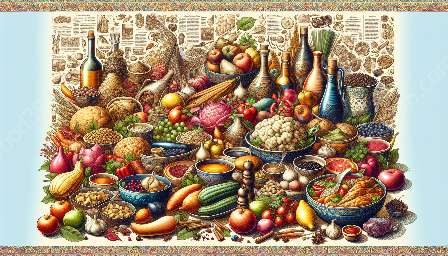Early agricultural practices and the development of food cultures are deeply intertwined with the role of gender in society. Gender played a crucial role in the early stages of farming and food production activities, influencing everything from agricultural techniques and food preparation to social organization and cultural practices.
Gender Roles in Early Farming:
Early agricultural societies often assigned specific gender roles to individuals, with men typically engaging in activities such as clearing land, planting seeds, and tending to larger livestock, while women were responsible for tasks like tending to smaller animals, gathering wild plants, and processing food. These gendered divisions of labor were influenced by biological differences, but they also reflected the cultural norms and societal expectations of the time.
Impact on Agricultural Techniques:
The gendered division of labor had a significant impact on the development of agricultural techniques. For instance, women's role in gathering and processing food led to the domestication and cultivation of cereals and legumes, while men's involvement in clearing land and tending to larger livestock contributed to the expansion of agricultural land and the development of animal husbandry practices. These distinct roles and responsibilities shaped the evolution of farming practices and the cultivation of various food crops.
Social Organization and Power Structures:
Gender roles in early farming and food production activities also influenced social organization and power structures within agricultural societies. The division of labor created different spheres of influence for men and women, with men often assuming leadership roles in agricultural decision-making and external trade, while women exerted influence over domestic food production and the transmission of cultural knowledge.
Development of Food Cultures:
The role of gender in early farming and food production activities played a pivotal role in shaping the development of food cultures. Women's involvement in food processing and preparation contributed to the creation of culinary traditions, food preservation techniques, and the development of culturally significant dishes. Men's contributions to agricultural practices and animal husbandry also influenced the cultivation of specific food crops and the integration of livestock into food production systems, further shaping food cultures.
Origin and Evolution of Food Culture:
Gender dynamics in early farming and food production activities are essential to understanding the origin and evolution of food culture. The interplay between gender roles, agricultural practices, and social structures laid the foundation for distinct food cultures to emerge in different regions of the world. The transmission of knowledge and skills related to food production and preparation was often passed down through gendered lines, contributing to the diversification and preservation of food cultures over time.
By examining the role of gender in early farming and food production activities, we gain valuable insights into the complexities of food culture development and the enduring impact of gender dynamics on the evolution of human societies.


